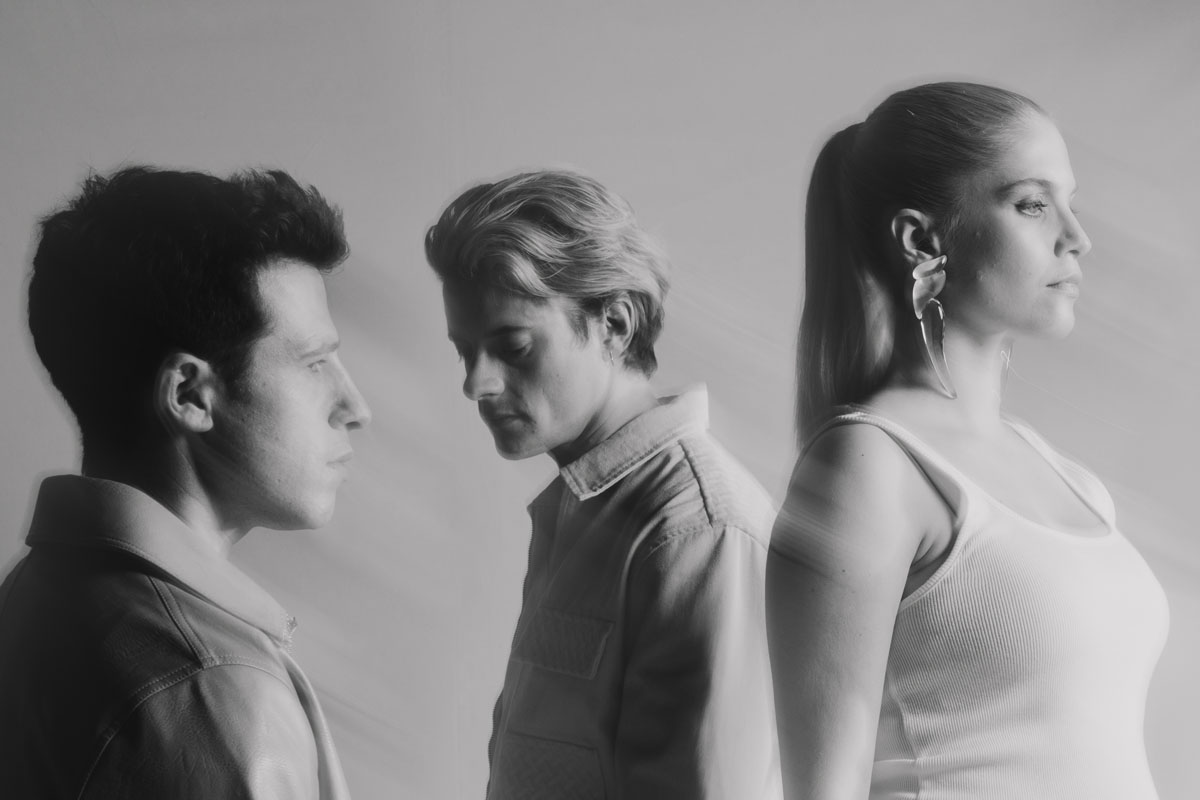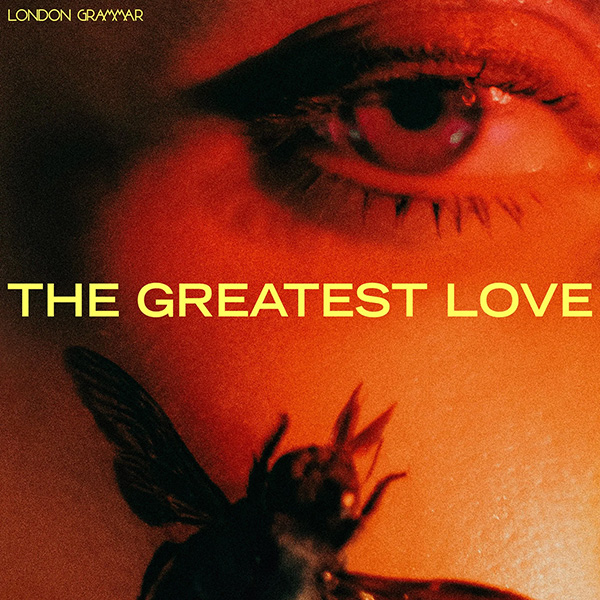London Grammar's Passion on The Greatest Love: Echoes October CD of the Month

Sometimes it’s easy to forget that London Grammar is still a relatively young band. Singer Hannah Reid, guitarist Dan Rothman and multi-instrumentalist Dot Major only met at the University in Nottingham in 2009 and started by releasing songs on the internet, including one of their best-known tracks, “Hey Now.” But over the course of four albums since their 2013 debut, they have matured considerably. The Greatest Love isn’t a sea change, but it is a nearly perfect addition to the London Grammar canon.
London Grammar’s songs range wide in emotions where Reid can sometimes sound confident and dominating, and sometimes sweet or vulnerable. She’s often all of that in a single song, like “Fakest Bitch,” a story of a friendship gone sour. It’s a surprisingly sweet song melodically that masks some bitter lyrics with gently-strummed acoustic guitar and delicate, spare piano against a synth pad. Hannah Reid manages to be angry and injured at the same time. Despite some lyrical vitriol, the song is hauntingly beautiful and the chorus may leave you crying.
“ You and I” is one of several songs that takes on a more orchestral approach. It opens with romantic strings that might have you thinking of early sixties exotica, and ends with those strings soaring in the climax of this love song that sees the bitter end – but it’s not here yet. “No matter where you are there’s a lot of love left here for you and I.” For the rousing conclusion, Reid is joined by the Rhythm Studio Choir, which sounds like a children’s choir, in a gospel-like chorus.
You and I” is one of several songs that takes on a more orchestral approach. It opens with romantic strings that might have you thinking of early sixties exotica, and ends with those strings soaring in the climax of this love song that sees the bitter end – but it’s not here yet. “No matter where you are there’s a lot of love left here for you and I.” For the rousing conclusion, Reid is joined by the Rhythm Studio Choir, which sounds like a children’s choir, in a gospel-like chorus.
Following up on the California Soil album, which had songs like the title track and “America,” both of which are about ambivalent or failed relations in the US, she once again lashes out with America set songs with “Sante Fe” and “LA.”
“Now that I’m here in Los Angeles
I’m in the land of the gods
There’s nothing here for me
And if I stay the pain will only carry-on”
Reid sings of her trauma against John Barry strings, a groove that turns EDM, and her voice spiraling up in delays and reverb. It sounds like the rapture, as she ascends into heaven away from LA.
“Sante Fe” is another break-up song for which the New Mexico city provides a backdrop for a failed connection.
London Grammar have dialed down the reverb on Reid’s voice for many of these songs. It reveals an even more beautiful vulnerability on tracks like “Rescue” as she sings in an almost nursery rhyme lyrics over a cooly syncopated groove. I don’t hear this as an electronic album, but electronics are all over it, especially in spatial effects on “Rescue,” provided by co-writer and DJ/Producer George Fitzgerald. Many of the tracks play with Reid’s voice, doubling and tripling it in layers, altering pitch, and creating structures like the canon in the middle of “Rescue”
You can also hear those effects on “Into Gold.” It’s the trippiest song on the album, with looping, hocketing vocal rounds, and Reid’s voice spun into delayed echoes, all of which ultimately converge on a Dot Major modular synth sequencer flurry. Like many of her songs, it’s tortured and lovelorn, attempting to see the light in dissolution, or as the lyrics say, “turn darkness into gold.”
The album is bookended by a pair of songs about empowerment and thinly-veiled critiques of the music industry. The album opens with “House.” It’s a song of assertion with a drum-and-bass groove and lyrics that demand attention. These lyrics aren’t sung, but more shouted like commands.
“Do you see me? Feel me? Don’t think you do
Cause this is my place, my house, my rules
You’re so welcome in this house that I have built
Where imagination feeds the things you feel.”
The album concludes with the title track, which I thought might be a hymn to her new born son, Joshua, who she had with her longtime partner, Sean O’Connor. Lines like “I think I’ve found the greatest love, Sent from high above baby” made me think that. But Reid asserts it was composed before that event which then makes me read it as a paean to a friendship from a woman who “stood by me when all was gone and the world was so unrelenting.” The unrelenting part is identified in the following lines: “When they tied my hands with velvet string
They said I was worthless but worth everything.” She’s clearly talking about the music industry and its still-rampant sexism, despite strong women like Reid.
It’s a powerful conclusion to the album, which begins in power and never really stops. In The Greatest Loveyou can hear a singer and lyricist in command of her talents, accompanied by two artists who know how to perfectly frame her. Interestingly, all but two songs on the album conclude with Hanna Reid’s voice as the last sound. I can’t think of anything better you’d want to hear.
Read our review of London Grammar’s Californian Soil
Hear our 2021 interview with London Grammar
